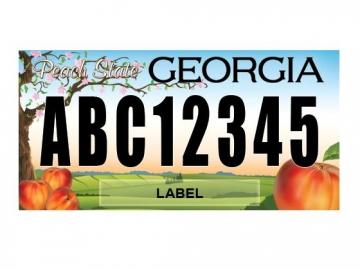
Section Branding
Header Content
Personalized Plates Hearing Tuesday
Primary Content

People who want more freedom when it comes to selecting their personalized license plates will get their chance to speak out Tuesday morning. The Georgia Department of Revenue is holding a public hearing about proposed changes to the state’s prestige license plate regulations.
The state has been operating under emergency regulations since June. That was when they reached a settlement with First Amendment attorney Cynthia Counts and her client, Cyrus Gilbert.
Counts filed a lawsuit on behalf of Gilbert earlier this year after the state denied him three different personalized plates, which all contained the word “gay.”
“I’m glad to say that Cyrus Gilbert is now running around in a car with ‘GAYPWR’ on it,” said Counts.
Counts argued that by denying Gilbert’s requests, the state was violating his First Amendment right of free speech.
The state’s emergency regulations, while allowing Gilbert’s plate, may have created new problems. The rules ban profanity and obscenity, but they also ban any reference to crime, weapons, drugs and alcohol. The guidelines also outlaw several variations of the word “hate.”
“The purpose of the First Amendment is to allow political speech and ideas to be exchanged,” explained Counts. “When you’re talking things like about weapons and whether you love or hate weapons, that is an important political issue in the country today and I think it violates the idea that you can’t ban an entire category of speech, but beyond that, I just think it’s strange. Why would you want to ban a category of speech like that?”
Executive Director of the Georgia First Amendment Foundation, Hollie Manheimer, said the state must have clear reasons for denying one tag application over another.
“There’s really only one rule of thumb: arbitrary standards lead to viewpoint discrimination,” said Manheimer. “So, whatever it is that the state needs to set up, it needs to keep in mind that it can’t be an arbitrary standard because it’s going to land itself in trouble.”
Sean Casey, Assistant Deputy Commissioner of the Georgia Department of Revenue, said the department outlined the emergency procedures to make accomplish four main goals. First, the rules provide clear guidelines on what is acceptable for a tag. Second, they provide for an appeal process if someone’s tag application is denied. Third, they require the state to keep a list of tags that will not be accepted. Finally, the state must review that list at least once a year.
Casey said the permanent guidelines will likely contain the same basic goals, though the Department of Revenue will take people’s comments into consideration as they finalize those rules.
As for those who already have license plates deemed “unacceptable” by the new standards, they can keep them, for now.
The Department of Revenue’s not out to get anyone,” said Casey. “If someone has a plate that has been approved in years past that say is on the banned list today, we are not going to track that individual down and in the middle of the night take their license plate.”
The Department of Revenue’s public hearing is Tuesday at 10:00 a.m. at their headquarters in Atlanta.
Tags: public hearing, regulations, personalized license plates
